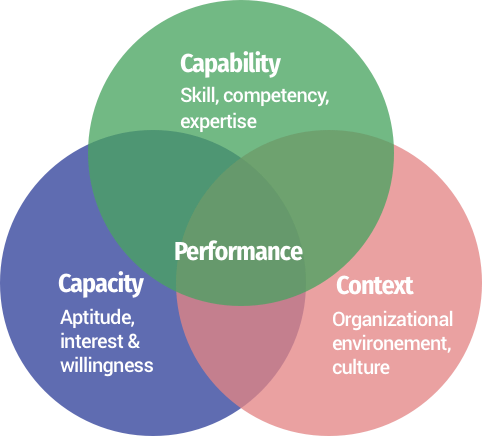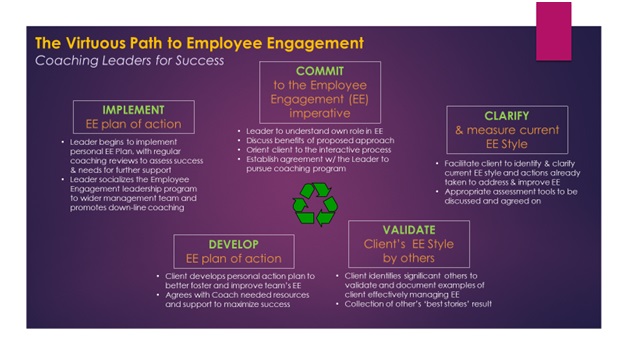Table of Contents
Using Data To Strengthen 4 Areas Of Employee Engagement in Keller Texas

Prior to the 2018 tax law changes, exchanges of personal property might qualify under Section 1031. Exchanges of shares of business stock in various companies did not qualify. Not qualifying were exchanges of collaboration interests in various partnerships and exchanges of animals of various sexes. As of a 2002 IRS judgment (see renters in typical 1031 exchange), Tenants in Common (TIC) exchanges are allowed - Leadership training.
In order to get complete benefit, the replacement home should be of equal or higher value, and all of the proceeds from the relinquished home should be used to acquire the replacement property - emotional intelligence. The taxpayer can not get the profits of the sale of the old residential or commercial property; doing so will disqualify the exchange for the portion of the sale proceeds that the taxpayer received.
In this method, the taxpayer does not have access to or control over the funds when the sale of the old property closes. At the close of the given up property sale, the proceeds are sent out by the closing representative (normally a title business, escrow business, or closing attorney) to the Competent Intermediary, who holds the funds until such time as the transaction for the acquisition of the replacement home is prepared to close.
After the acquisition of the replacement property closes, the Qualifying Intermediary provides the property to the taxpayer, all without the taxpayer ever having "useful invoice" of the funds - emotional intelligence. The prevailing concept behind the 1031 exchange is that because the taxpayer is simply exchanging one home for another residential or commercial property(ies) of "like-kind" there is nothing received by the taxpayer that can be used to pay taxes.
All gain is still secured in the exchanged home therefore no gain or loss is "recognized" or declared for earnings tax functions. It is not utilized in the Internal Income Code, the term "boot" is frequently used in going over the tax implications of a 1031 exchange. Boot is an old English term meaning "something given up addition to." "Boot got" is the cash or fair market value of "other property" received by the taxpayer in an exchange.
"Other residential or commercial property" is residential or commercial property that is non-like-kind, such as personal effects, a promissory note from the purchaser, a pledge to carry out deal with the residential or commercial property, a company, and so on. There are lots of ways for a taxpayer to get "boot", even inadvertently. It is essential for a taxpayer to comprehend what can lead to boot if taxable income is to be prevented.
How To Drive Employee Engagement And Become A Better ... in Addison Texas

This will generally remain in the type of "net money received", or the distinction in between money gotten from the sale of the given up residential or commercial property and cash paid to acquire the replacement residential or commercial property(ies). Net money got can result when a taxpayer is "Trading down" in the exchange (i. e. the list price of replacement home(ies) is less than that of the relinquished.) Financial obligation decrease boot which occurs when a taxpayer's debt on replacement residential or commercial property is less than the debt which was on the relinquished home.

Debt decrease can be offset with cash used to acquire the replacement residential or commercial property. Sale earnings being utilized to pay non-qualified expenditures. For instance, service expenses at closing which are not closing costs. If proceeds from the sale are used to service non-transaction expenses at closing, the result is the same as if the taxpayer had actually gotten money from the exchange, and then used the money to pay these costs.

e. rent prorations, energy escrow charges, tenant damage deposits transferred to the purchaser, and any other charges unassociated to the closing - shipley coaching. Excess loaning to get replacement home. Borrowing more money than is essential to close on replacement home will not lead to the taxpayer receiving tax-free cash from the closing.

If the addition of exchange funds develops a surplus at the closing, all unused exchange funds will be returned to the Competent Intermediary, probably to be used to obtain more replacement residential or commercial property. Loan acquisition expenses (origination charges and other charges connected to getting the loan) with regard to the replacement property need to be brought to the closing from the taxpayer's personal funds.
Nevertheless, the internal revenue service may take the position that these costs are being paid with exchange funds. This position is normally the position of the financing institution also - four lenses. Regrettably, at the present time there is no guidance from the IRS on this issue which is useful. Non-like-kind property which is gotten from the exchange, in addition to like-kind home (property).
Table of Contents
Latest Posts
The Importance Of Self-awareness And Emotional Intelligence ... Sunnyvale Texas
Self Awareness Meets Emotional Intelligence (Eq) - Dallas Texas
Emotional Intelligence And Self-awareness - Grapevine TX
Navigation
Latest Posts
The Importance Of Self-awareness And Emotional Intelligence ... Sunnyvale Texas
Self Awareness Meets Emotional Intelligence (Eq) - Dallas Texas
Emotional Intelligence And Self-awareness - Grapevine TX